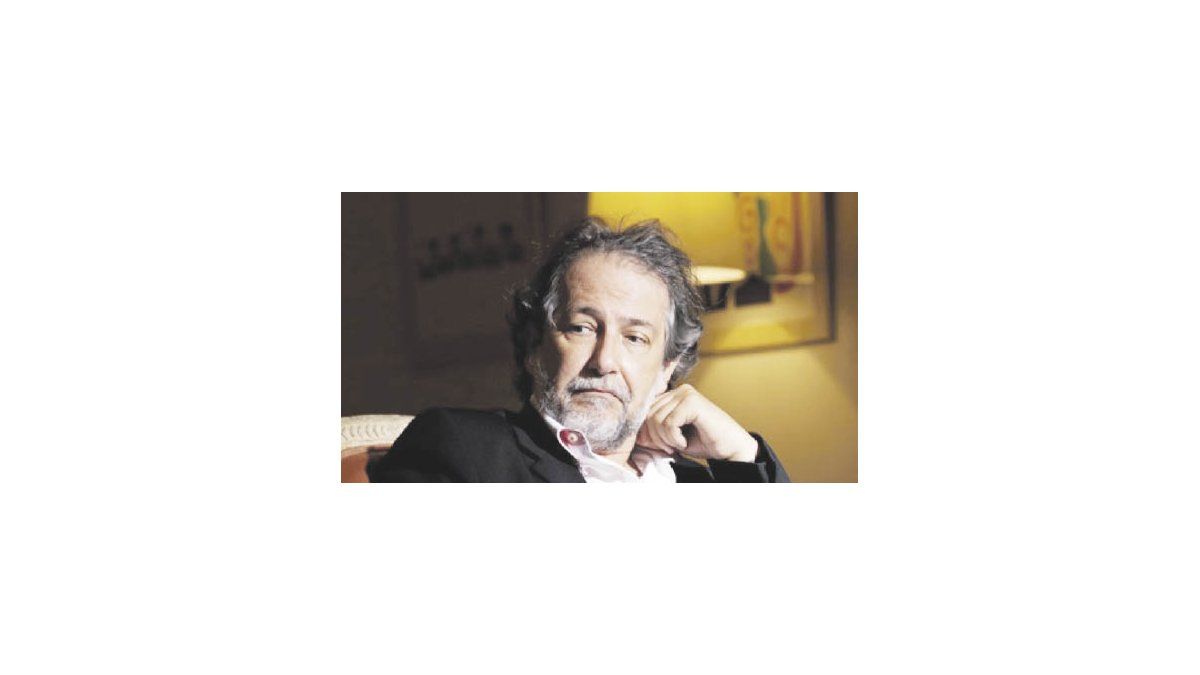Henry Gabriel: She was born in Paris, her parents in Eastern Europe, ours is a very representative story of what was lived in the 20th century. “The century of acronyms”, she gave the title to the book, by SS, KGB, etc. I tell you, my great-uncle, Enrique Lipschutz, was the first Jewish journalist in Argentina, he worked for “La Prensa”, and my grandfather, being a young immigrant, became a nationalized Argentine and returned to Romania to look for his future wife. They were in Barcelona with my mother, barely a child, when the Civil War caught up with them. Luckily the Argentine consul helped them. Always in the family we are saved by a miracle.
P.: That book has many adventures, enough for a mini-series.
EG: Yes, but it requires the co-production of several countries, including Russia.
Q.: And the story of the accordionist?
EG: When I met him I told my wife “With this man’s anecdotes we have to make a Latin “Seinfeld”!”. The book is called “The restless life of Alex Carozza”. Alessandro Carozza will now turn 95 in July. He was born in a small town in Abruzzo, he came to José León Suárez as a child, he sought them out in various trades, in shorts he already played in piringundines del Bajo, from there he went to tearooms with the Mario Carvi orchestra, where Alberto Cortez made his debut , he married the girl next door, he was doing very well, but at 33, the age of anguish, he went to New York with just the accordion and a hundred dollars, he played in the street, in an Italian restaurant, then he entered the instrument tuning and sales business, settled on 48th Street in Manhattan, exactly on Manhattan Music Road, as they called it until recently, between 7th and 6th, where the famous jazz, rock, Latin music, tuned both Piazzolla’s bellows and the trumpet of a Dominican who played at parties, and ended up doing real estate deals with Rockefeller’s people. His partner, Pasquale Ficosecco, is another character. In the store there was always a good atmosphere, interesting customers, nice talks. It closed just before the pandemic, it was the last one left on Calle 48. 47 was the one for the diamonds. The streets of the trades, all that was lost!
P.: Yours is also enough for a memoir. The Museo del Cine has dedicated a complete retrospective to him, from the first to the last film, with Ángela Molina.
EG: That last one, “Little Lives”, was the best thing I did, perhaps the only good one, the one I love the most, and my biggest failure. With just a week of filming to go, the producer went bankrupt. Nice guy, but his flaws outweighed his virtues. We were unemployed for two years, I went crazy, with my anger I made my wife suffer, poor thing, with a lot of effort we finished it, then she premiered quite badly, and nothing happened.
Q.: See? That’s enough for a book. And his other films, such as “Suspiros de amor”, or the documentary “La muerte” about the escape of Argentine scientists over the years, and his productions in Colombia, or his youthful work alongside directors such as Manuel Summers, José Luis Borau, Franklin Schaffner, Blake Edwards or Warren Beatty, there is much to tell.
EG: But I just had to work on the bad films by the good directors, except for one by Ricardo Franco and Warren Beatty’s “Reds”, which were really good!
Q.: And we haven’t talked about this yet: do you know that the first news that spread here of your existence was “Argentine coach seduces English star Lesley-Ann Down”?
EG: What an embarrassment! But it was her! I was 21 years old, just the third assistant director (pretty, long-haired, I admit). The movie was “The Sphinx”, a bodrio. She called me into her dressing room to help her go over the lines. From there we went to dance, her, her hairdresser, a driver who was with the hairdresser, and me. We did exteriors in Luxor, Egypt, we got married in London, well, I lived in first class for two years, flights on the Concorde, guests at the Oscars, all that. One day I went to Spain for four months to help a friend in her first film. He didn’t like it. In the fourth month she arranged with William Friedkin, the director of “The Exorcist”.
Q.: Don’t worry, Friedkin was fired by the director of photography for “Terminator 2”.
Source: Ambito
David William is a talented author who has made a name for himself in the world of writing. He is a professional author who writes on a wide range of topics, from general interest to opinion news. David is currently working as a writer at 24 hours worlds where he brings his unique perspective and in-depth research to his articles, making them both informative and engaging.




